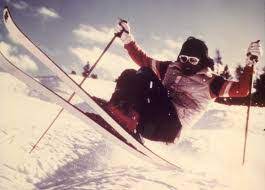Over the past 15 years, the landscape of ski culture in America has undergone a significant transformation, with Vail Resorts and Alterra Mountain Company playing pivotal roles in this shift. In the past, conversations at ski areas revolved around the thrill of finding the best powder, debates about skiing versus snowboarding, technological advancements in the industry, and recommendations for the finest après-ski spots. However, the current discourse has shifted towards the dominance of “Epic or Ikon?”, escalating ticket prices, long lift lines, and a yearning for the bygone ski bum culture.
The catalyst for this change can be traced back to Vail Resorts’ creation of the Epic Pass and Alterra Mountain Company’s subsequent introduction of the Ikon pass. Priced at around $969 and $1,309 respectively, these passes grant access to an extensive network of resorts across North America, Europe, Japan, and Australia. While seemingly offering an enticing deal with nearly unlimited access, these passes have led to a fundamental shift in the ski experience.
Previously, most major resorts offered season passes exclusive to their location at nearly double the cost of today’s Epic and Ikon passes. Despite the apparent cost savings, the financial burden on skiers has shifted to other areas, such as exorbitant parking fees, increased rental costs, expensive dining options, and soaring prices for ski lessons and accommodations. Even for those without a season pass, day tickets can add an extra $220 to $300 per person.
Beyond financial implications, the Epic and Ikon passes have triggered a private equity takeover of the ski industry, creating a profit-focused duopoly. Vail and Alterra’s extensive acquisitions of housing, lodging, and businesses in ski towns have inflated local markets, raising rent prices and displacing long-time resort workers without fair compensation. This corporate dominance has led to class-action lawsuits, worker unionization, and numerous public relations incidents highlighting critical understaffing and terrain closures at resorts.
While the economic impact is measurable, the more profound changes lie in the erosion of the soul of skiing and mountain town culture. Independent retailers have been bought out or pushed out, corporate policies restrict individual freedom on and off the mountain, and catering to affluent tourists has replaced the sense of community among locals. The once-vibrant ski culture, characterized by individual expression and unique experiences, has been suppressed or, in some cases, eradicated.
As the popularity of the Epic and Ikon passes extends to international territories, with a focus on European expansion, the threat to local culture looms large. Recent acquisitions, such as Crans Montana in Switzerland, reflect a strategy geared towards global growth. The consequences of this shift are not merely financial; they extend to the very fabric of the ski experience, prompting reflection on the true cost of accessibility in an evolving ski culture.
All that said, real estate, second homeownership, mountain living, condos, single family homes, Telluride, Mountain Village, Aldasoro, Telluride Ski Ranches, vacation properties and the unbeleivable beauty of the San Juan Mountains make Telluride and the Mountain Village one of the most unique places you’ll ever visit in America, whether summer or winter.

